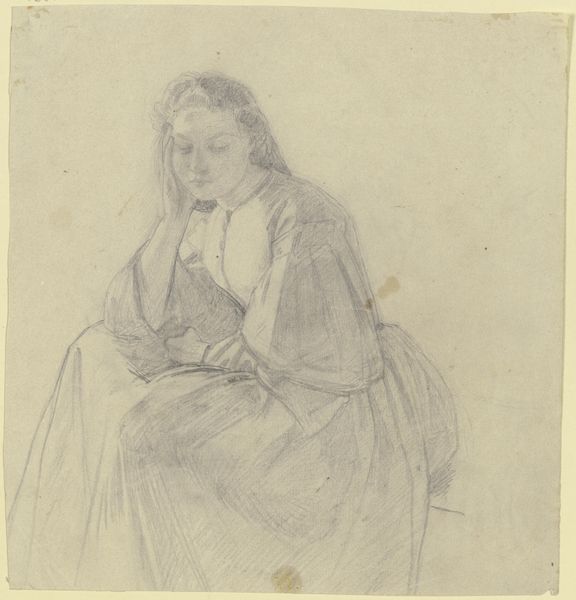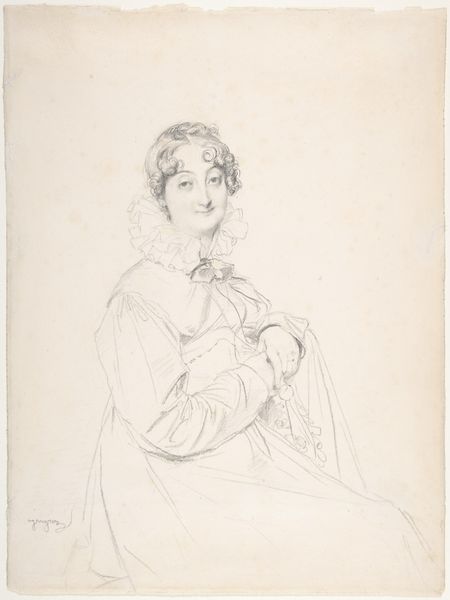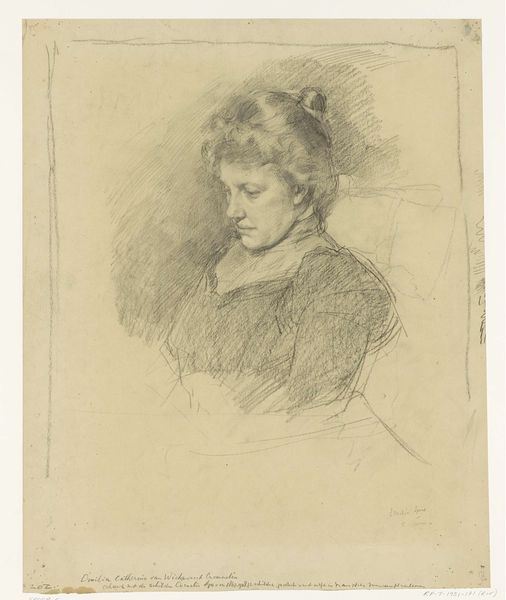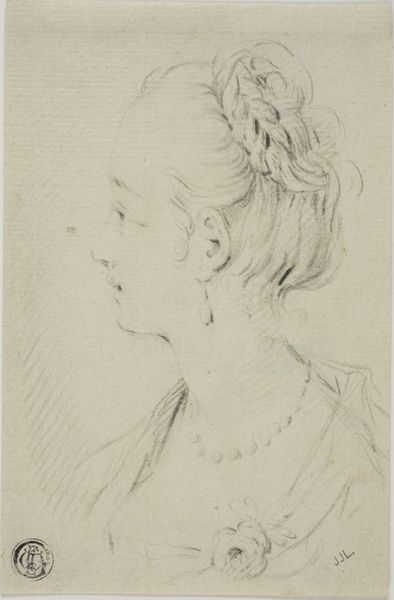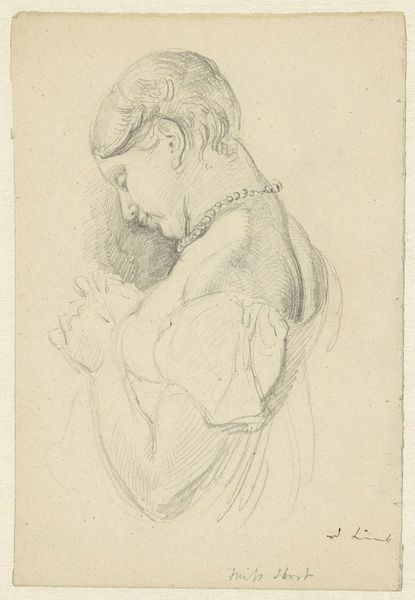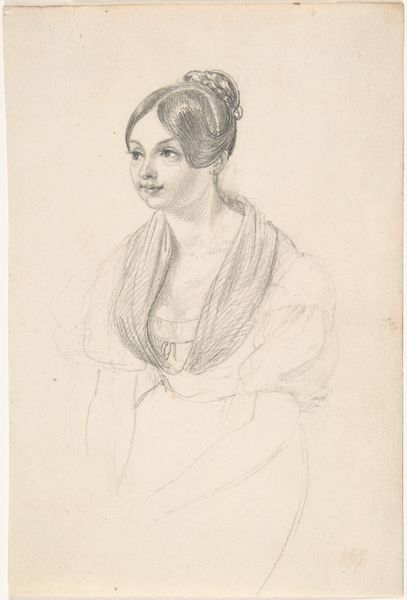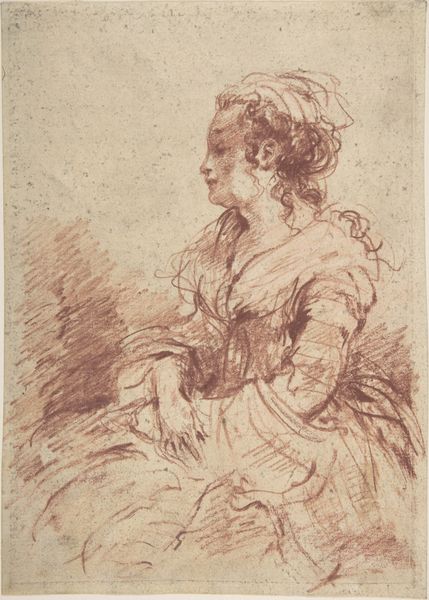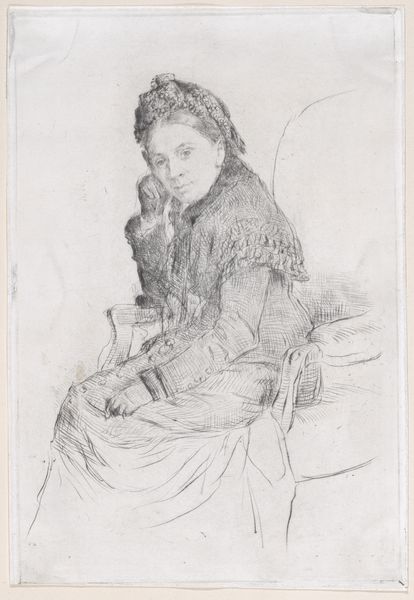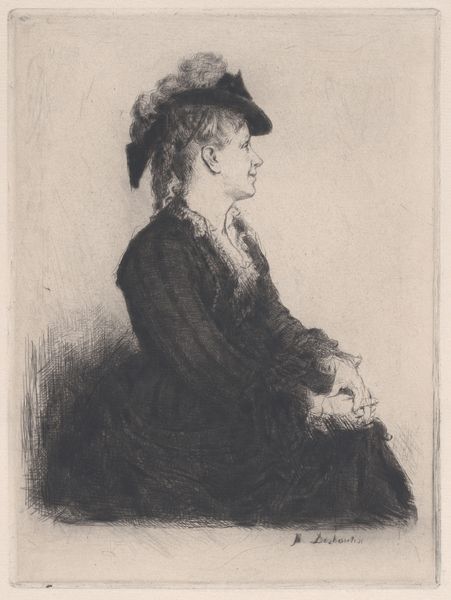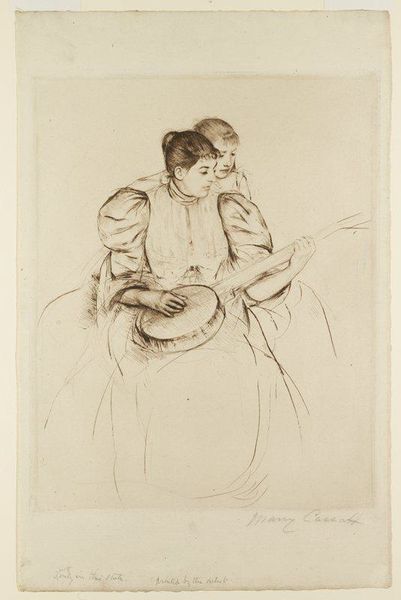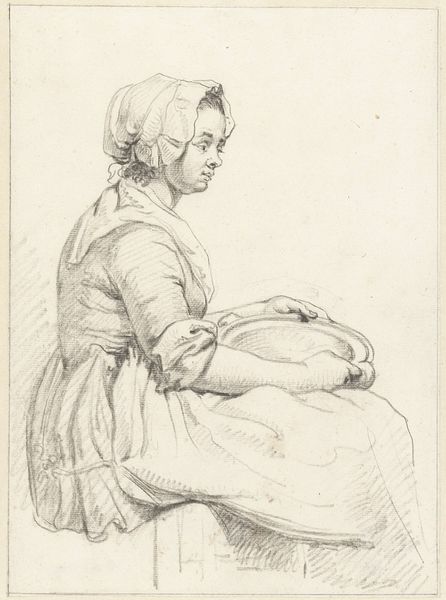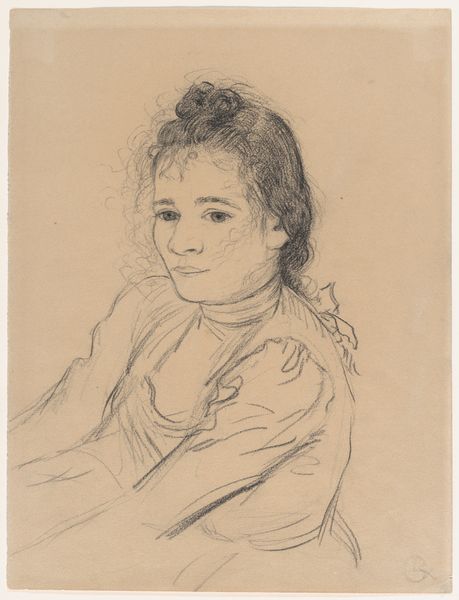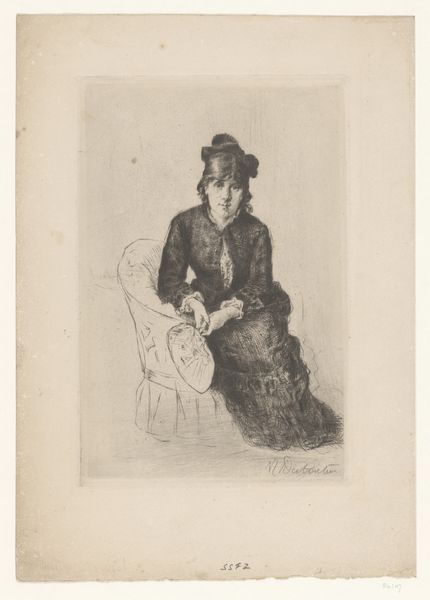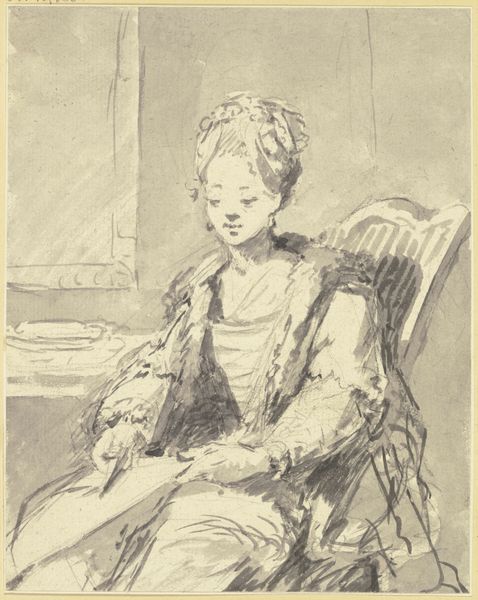
Portret van een zittende vrouw met de ogen neergeslagen 1820 - 1883
0:00
0:00
theodoorschaepkens
Rijksmuseum
Dimensions: height 213 mm, width 169 mm
Copyright: Rijks Museum: Open Domain
Editor: We’re looking at Theodoor Schaepkens’ “Portrait of a Seated Woman with Eyes Downcast,” likely created sometime between 1820 and 1883. It’s a pencil drawing, and there's a certain somber, introspective mood to it. What strikes you when you look at this drawing? Curator: The averted gaze speaks volumes, doesn’t it? Instead of directly engaging the viewer, this woman's downcast eyes situate her within a patriarchal structure that historically denied women agency and power. Her posture can be seen as indicative of the limited roles and expectations imposed upon women during the 19th century. How does this visual representation connect to the societal constraints placed on women? Editor: So you're seeing the drawing as a reflection of broader social power dynamics? The Romantic style might contribute to that sense of quiet constraint. Curator: Precisely. Think about how women were often portrayed passively, as objects of beauty or symbols of virtue, rather than active participants in society. Does her clothing provide additional context about social position or expectation? Editor: It’s hard to say much about it with just a pencil sketch, but the high collar and long sleeves hint at modesty and a certain social class. Curator: And within that class structure, what expectations were placed on women in terms of marriage, domesticity, and social behavior? Could the drawing be seen as subtly resisting or critiquing those constraints through its quiet emotionality? Editor: It gives a lot to consider regarding female identity and social context in 19th century art. Thank you! Curator: And thank you for drawing those connections to the surface, making visible some of the nuanced societal conversations embedded within this work.
Comments
No comments
Be the first to comment and join the conversation on the ultimate creative platform.
